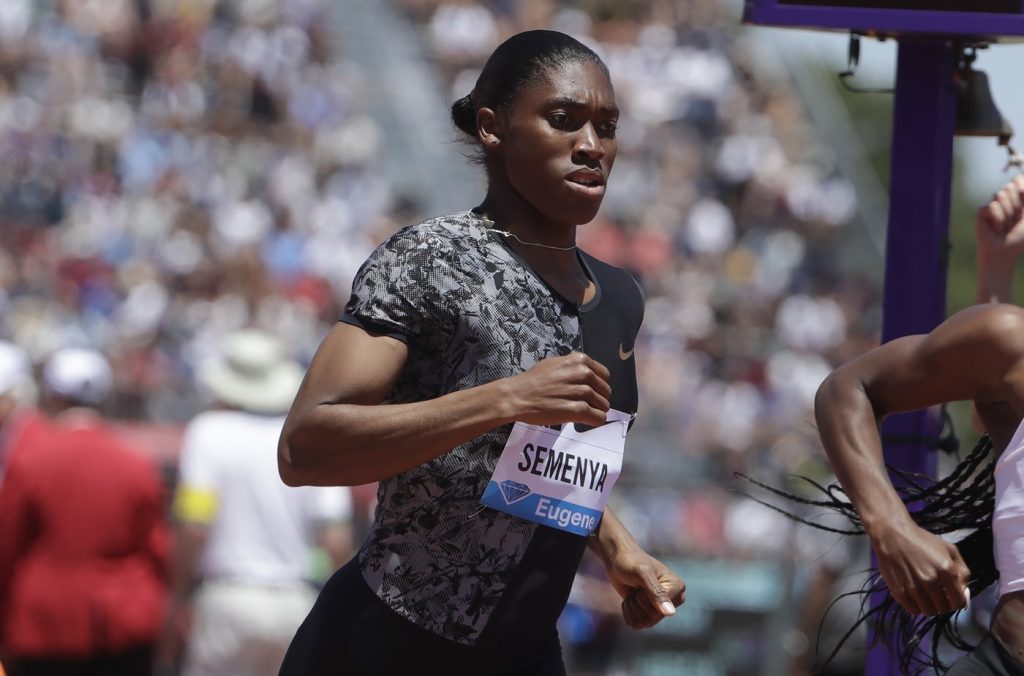CAPE TOWN, South Africa (AP) – A ruling expected this week from the European Court of Human Rights could reignite champion runner Caster Semenya's legal battle against sports authorities over sex eligibility regulations that have barred her from participating in major competitions, including the Olympics and world championships. If the court upholds a 2023 decision in Semenya's favor, it would cast renewed scrutiny on the rules requiring some female athletes to suppress their natural testosterone levels to compete, potentially paving the way for the regulations to be revoked.
The implications of this ruling extend beyond Semenya's case, sparking a broader conversation about fairness in women's sports. Track and field's regulations serve as a precedent for other sports grappling with similar issues surrounding athletes like Semenya, a two-time Olympic champion, who present complex dilemmas for sports administrators in determining sex eligibility. The case primarily concerns whether Semenya, who possesses certain medical conditions, a typical male chromosome pattern, and naturally high testosterone levels, should be permitted to compete in women's sports without restrictions.
Track authorities assert that these rules are essential for maintaining fairness, claiming that Semenya's elevated testosterone levels give her an unfair advantage akin to that of a male athlete. Conversely, Semenya contends that her testosterone levels represent a genetic advantage rather than an unfair edge.
The Grand Chamber of the European court, comprised of 17 judges who adjudicate the most significant cases, is set to deliver a verdict on Thursday after nearly two years of deliberation. The judges will determine whether to uphold a prior ruling suggesting that Semenya may have faced discrimination and been unjustly barred from her profession due to existing regulations. Semenya has refused to take medication to lower her testosterone levels, an action that has effectively curtailed her competitive career.
If the court sides with Semenya, it would not result immediately in the elimination of the regulations but would enable her legal challenge to continue. Conversely, a ruling against Semenya would likely conclude her case, as decisions made by the Grand Chamber cannot be appealed.
Semenya's career has been fraught with controversy since she first emerged on the international track scene in 2009, winning the world title in the 800 meters, which was followed by immediate scrutiny over her sex. It is crucial to clarify that Semenya is not transgender; she was assigned female at birth, raised as a girl, and has always identified as female. However, she has a condition known as differences of sex development (DSDs), leading to higher than average testosterone levels.
World Athletics, the governing body of track and field, angered Semenya by classifying her as "biologically male." In 2018, they implemented regulations requiring Semenya and other female athletes with DSDs to lower their testosterone levels to compete in international women's events. Semenya's legal challenges began thereafter, resulting in defeats at the Court of Arbitration for Sport in 2019 and again at the Swiss Supreme Court in 2020. However, a significant victory came in 2023 when the European Court of Human Rights indicated the regulations might violate her rights.
Should the Grand Chamber supports Semenya's position, it will send her case back to the Swiss Supreme Court and potentially to the Court of Arbitration for Sport, although this process could still take years.
The outcomes of Semenya's case may have far-reaching consequences for numerous high-profile Olympic sports, including swimming and soccer, which are presently evaluating their eligibility rules. The International Olympic Committee (IOC) faces mounting pressure to address female eligibility and evaluate existing regulations, especially given recent controversies in women's boxing and other sports.
As of now, Semenya has not competed internationally since 2019, having dominated the women's 800 meters prior to the implementation of these regulations. At 34, she has transitioned into a coaching role and clarified that her ongoing legal battle transcends her personal aspirations for running. "It's a battle for human rights now," Semenya expressed recently, emphasizing that the struggle centers around the rights and protections of athletes.










